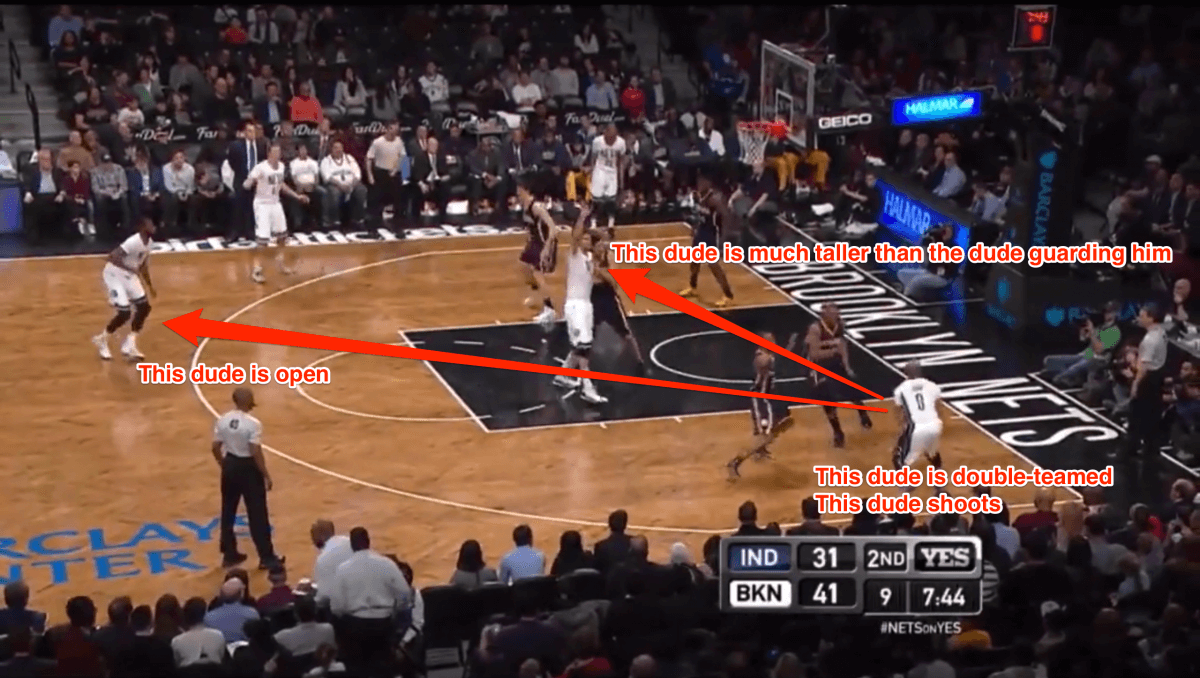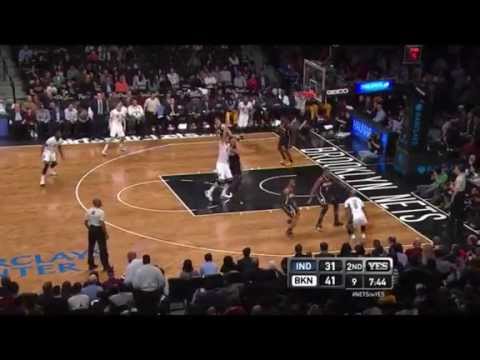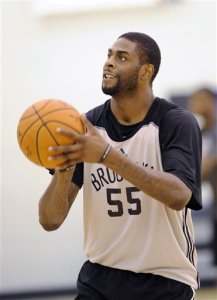Joe Johnson and Markel Brown fit in just fine with the starting five. Johnson spaces the floor and occasionally posts up to dominate a smaller defender or set up a teammate for an open shot, and Brown approaches the most harrowing defensive assignments with aplomb & occasionally throws down a stupidly fun dunk.
The lineup is no joke: they’ve outscored opponents by 16.2 points per 100 possessions by “keeping it simple,” as Lionel Hollins has said: limiting turnovers, controlling the offensive glass, and not fouling at inopportune times.
Williams & Lopez could regress at any point, and Markel Brown’s lack of shooting touch is glaring at times, but so far, this has worked. They’re the fourth-best lineup in the NBA since the All-Star break in terms of net rating[note]Minimum 120 minutes.[/note], and the top six is rounded out with championship contenders: the Spurs, Clippers (twice), Cavaliers, and Warriors all join Brooklyn on the list.
But the Nets aren’t contenders, and they’re a mess once they crack into that second unit. The “bench mob” has taken a serious hit since last season: They lost Andray Blatche by choice, Mirza Teletovic by injury, and Andrei Kirilenko by family. Shaun Livingston and Paul Pierce were starters, but they’re gone too, and the Nets could’ve used them to push some of their current rotation players further down the line.[note]The Nets had no shot at retaining Livingston, who bolted for greener and better pastures with the Warriors, and elected not to re-sign Pierce, who would’ve cost them as much in luxury tax payments as the Cavaliers pay LeBron James.[/note]
Jarrett Jack gets the brunt of the blame. His decision-making fluctuates from confusing to maddening in most games:
Jack had two obvious options: find Lopez, who had scored 14 of the team’s 31 first-quarter points in this game, in the post for a mismatch over Luis Scola, or hit Earl Clark on the perimeter, either keying an open three-pointer or scrambling Indiana’s defense on a swing pass. Jack chose door number three:

PETA’s going to be called in soon for how we’re treating this horse, but it bears repeating: the Nets have played good basketball with Deron Williams in the game, bad basketball with Jarrett Jack in the game, and worse basketball with both in the game together. This season, the Nets are a +104 with Williams on the court without Jack, -105 with the two on the court, and -218 with Jack running the show without Williams.
It really is that simple: Even a limited Williams is a plus-decision maker, and Jack is not, and the latter has impacted the former’s production in a bad way.
There’s no immediate solution; you can’t let anyone play 48 minutes a night, much less Deron Williams. But limiting Jack’s stretches to a few minutes at a time in each quarter is a better plan than giving him the keys to the offense for long stretches. It could mean the difference between a third straight year in the playoffs or a pointless trip to the lottery.
But it goes beyond just Jack. Mason Plumlee has hardly looked like the dunk-on-fools-and-play-just-enough-defense-to-get-by center that was deemed untouchable in January. Bojan Bogdanovic has struggled to stay in front of most NBA-level guards. Cory Jefferson has shown flashes but hasn’t carved out a consistent role all season. The second quarter, which is normally when bench players play the most minutes, has been the worst for the Nets all year.
There are glimpses. Bogdanovic has begun hitting shots, and he might already be one of the best off-ball cutters in the league. He just gets how the space works. Alan Anderson, who has spent the last week screaming “SPARTAN!” to small children and anyone else within earshot of the Tri-State, appears to have finally embraced his position as the Keith Bogans Memorial Role Star Hip Hop: defending, cutting, and hitting open three-pointers while everyone else does the fancy work. Anderson fits in in a pinch when he’s doing little things like this:
And this:
But those come when Anderson plays off the starters, not with the second unit.
The good news for the Nets: teams always play their benches less in the playoffs as games tighten up, and they’ll have a hidden advantage with their successful starters. The bad news: they have to get there first — and when they do, their opponents will play their first unit just as much. That doesn’t bode well for a team already staggering to the finish line.


















